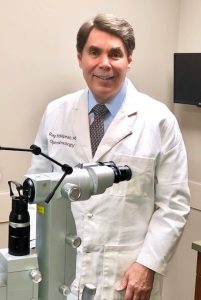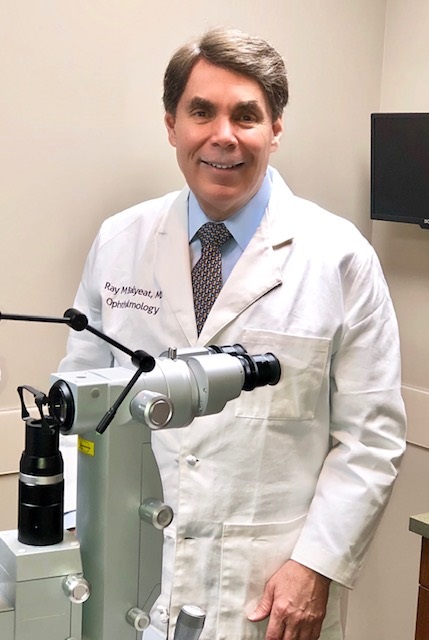I have been in private practice as an Ophthalmologist specializing in management of retinal disorders for over 25 years. My practice encompasses retinal surgery for retinal detachment, the management of macular holes and epi-retinal membranes and problems arising from advanced diabetic retinopathy. My office staff and I are busy helping patients with age-related macular degeneration (AMD), retinal vascular disease from retinal vein occlusion & diabetic retinopathy and inflammatory eye disease (uveitis). Fortunately, most retinal problems including some retinal detachments can be managed in the office. My office staff and I are committed to using the best technology and time tested treatment modalities to assist patients with their vision loss. Much of our time each week is spent administering intraocular medications for patients who have “anti-VEGF sensitive” conditions such as neovascular (“wet”) AMD, vein occlusions and diabetic retinopathy. During the last 2 decades I have witnessed tremendous changes in surgical technique and the development of new medications that are truly vision saving.
One of the “holy grails” of ophthalmology is the development of medications and/or surgery that might address the problem of “dry” or non-neovascular age-related macular degeneration. Although there are numerous concepts under research for patients with dry AMD such as progenitor cell transplants and medications that alter the response of the retina to inflammation and “programmed cell death”, an FDA approved treatment is not likely to appear within the next several years. However, a new highly potent intraocular medication for “wet” AMD is anticipated this fall (2019). This medication will probably allow patients to go longer between visits to their Retinologists as compared with the treatment effect of Avastin, Lucentis and Eylea. In addition, one pharmaceutical company is developing a drug reservoir that can be surgically implanted and refilled periodically with an anti-VEGF agent thus also potentially allowing patients to avoid frequent injections. My office staff and I are committed to monitoring these research projects and bringing these new developments to our patients in northeast Oklahoma.






